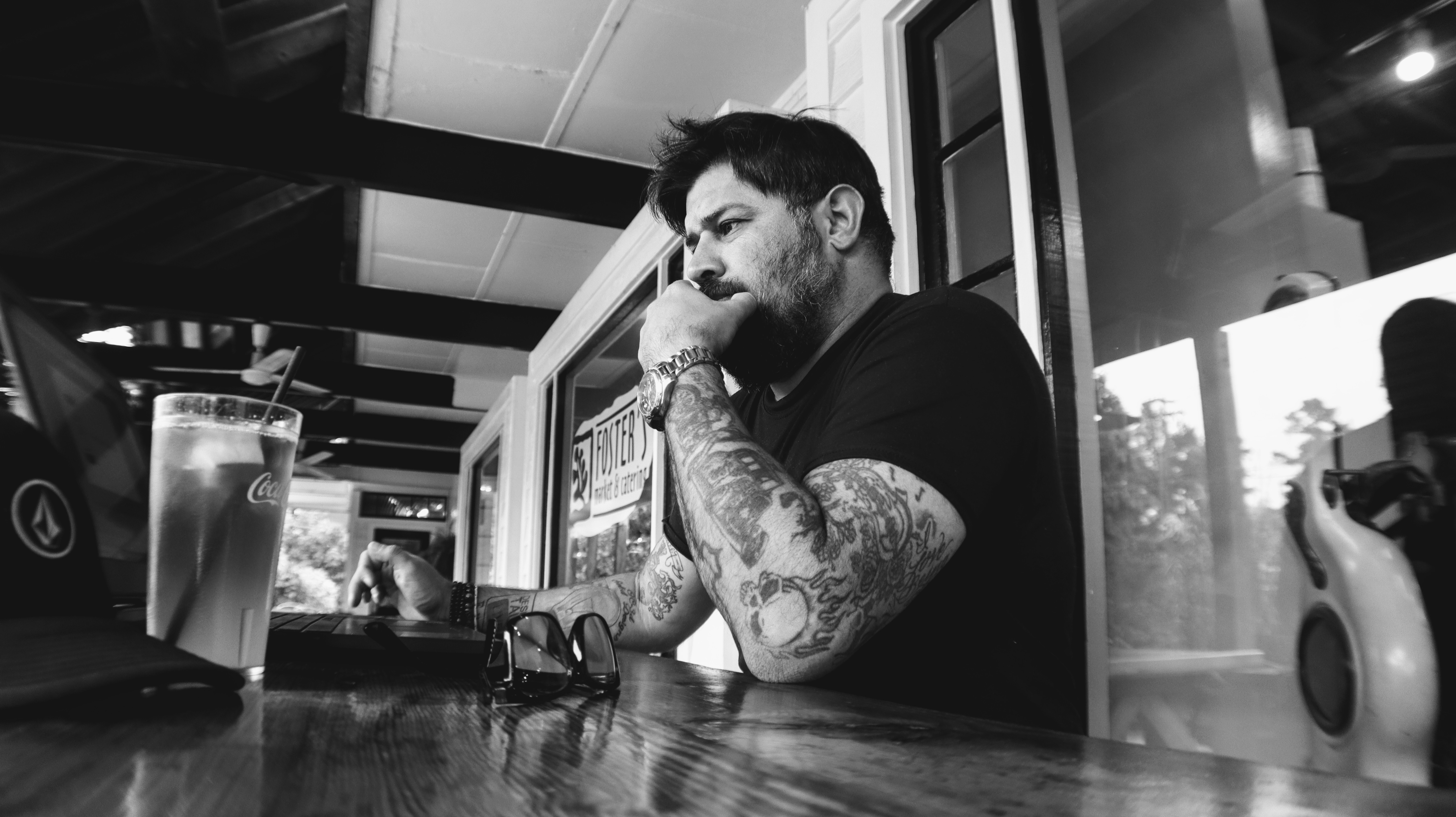
The Silence After the Layoff: What Job Seekers Really Need From Their Friends
- Joseph Haecker
- Oct 19
- 6 min read
By Joseph Haecker — Editor, Open To Work Social
The Silence That Follows
I don’t know who needs to hear this, but your unemployed friend doesn’t need another “you got this.”
They need you to stop acting like their layoff is contagious.
Because when someone loses their job, they don’t just lose income — they lose identity, routine, confidence, and connection.
Trust me, I’ve been there. Twice.
And both times, it wasn’t the layoff that broke me. It was the silence that followed.
The text messages that stopped.
The conversations that dried up.
The invitations that never came.
You don’t realize how much your sense of belonging depends on work until you’re suddenly outside the circle, watching the world keep moving without you.
People don’t mean to disappear. They just don’t know what to say.
So they say nothing.
And that silence — that emptiness — can be devastating.

The Emotional Weight of Losing Work
We often talk about job loss like it’s a financial crisis. But it’s also a social one — and a psychological one.
Work doesn’t just give us a paycheck. It gives us a place. It gives us a reason to wake up, a reason to dress up, and a rhythm to our days.
When you lose that, your entire sense of self goes through withdrawal.
Suddenly, you’re navigating long, quiet mornings that feel unfamiliar. You check your phone, hoping someone reached out.
You scroll through LinkedIn, watching others celebrate promotions and new beginnings, wondering why your story doesn’t look like theirs.
And when friends or colleagues go silent, that loneliness turns inward. It becomes self-blame.
“Did I do something wrong?”
“Did my job define me more than I thought?”
“Do I still matter to the people who used to need me?”
That’s the hidden trauma of a layoff — not just the loss of work, but the loss of belonging.
The Myth of “Professional Resilience”
In today’s world, we’re taught to perform strength.
We post polished updates about “new opportunities,” we share quotes about “bouncing back,” and we put on a brave face for interviews, even when our confidence is fractured.
We act fine because vulnerability doesn’t fit neatly into a résumé.
But the truth is, resilience doesn’t mean pretending you’re unaffected. Resilience means feeling the impact and choosing to rebuild anyway.
And rebuilding is hard. It’s slow. It’s uncertain.
Yet, most of the world expects instant recovery.
You lose your job, and within days, people start asking, “Any updates?” You haven’t even finished processing what happened, and already the world wants to fast-forward to your comeback story.
That pressure — to be productive, optimistic, and composed — can make the healing process even lonelier.
The Hardest Part Isn’t the Layoff — It’s the Isolation
Most people think layoffs are about losing money.
But the real loss is community.
Work provides a built-in network of people who see you daily, who ask how your weekend was, who notice if you’re quiet.
When that’s gone, the silence becomes deafening.
You go from dozens of daily interactions to none.
You start second-guessing your worth — not because of the job, but because of how quickly you became invisible.
The world moves fast. And when you’re standing still, it can feel like everyone has forgotten you.
But the truth is, what you’re experiencing is not failure.
It’s grief.
Grief for stability.
Grief for identity.
Grief for connection.
And like all forms of grief, it’s not something that can be fixed with advice or encouragement.
It needs empathy.
The “You Got This” Trap
When someone loses their job, most people want to help — they just don’t know how.
So they reach for the easiest comfort they can find:
“You got this.”
“You’ll land something better soon.”
“Everything happens for a reason.”
We’ve all said it. I’ve said it too.
But what we often fail to realize is that these phrases — while well-intentioned — can make the person feel unseen.
Because they skip over the pain.
They bypass the fear. They rush to the ending of a story that’s still unfolding.
“You got this” might sound supportive, but it can feel like dismissal.
Sometimes, the kindest thing you can say isn’t “You’ll be fine.”
It’s “This must be really hard.”
It’s “I’m here.”
Empathy doesn’t fix anything. It just makes the silence less unbearable.
How to Really Show Up
So, what does real support look like?
Here’s what I’ve learned — both as someone who’s been laid off and someone who’s walked with friends through it:
1. Ask about them, not their job search.
When you ask, “How’s the job hunt going?”, it reinforces the idea that their worth is tied to progress.
Instead, ask, “How are you holding up?”
“How are you feeling this week?”
“What’s been hardest for you?”
These are the questions that open the door to real connection.
2. Keep inviting them.
A walk. A coffee. A call. A Netflix night in.
Don’t make every interaction about productivity or networking.
People who’ve lost their jobs often withdraw because they feel like a burden.
Your consistency — your willingness to keep including them — tells them they still belong.
3. Don’t make it about money.
If they decline invitations because they’re watching expenses, offer alternatives. Meet for a walk. Bring coffee. Visit them at home.
It’s not about grand gestures — it’s about being present.
4. Watch your words.
Don’t brag about work wins while they’re hurting. Don’t minimize their experience with phrases like “At least you have time to rest.” And don’t suggest they “just apply more” — they’ve heard that a hundred times.
They didn’t fail. The system did.
The Unspoken Truth: Work Is Emotional Infrastructure
We underestimate how deeply work shapes our lives.
It’s not just a job — it’s a source of rhythm and recognition. It gives us validation, structure, purpose.
When it’s gone, you don’t just lose a routine — you lose your reflection in the world.
That’s why people often describe unemployment as disorienting. Because without the context of work, you have to re-learn who you are.
And yet, society rarely gives people the space to do that.
We celebrate hustle. We glorify “next chapter” posts. We applaud resilience — but skip compassion.
We treat layoffs like interruptions, not transformations.
The Quiet Shame of Disappearing
What hurts most isn’t the rejection emails.
It’s the people who stop showing up.
When you’re employed, your value is affirmed every day — through meetings, deadlines, Slack messages, recognition.
When you’re unemployed, the world goes quiet. And that quiet makes you wonder if your worth was ever real — or if it was just borrowed from your title.
It’s a question no one wants to ask out loud, but it echoes through every job loss story:
“Would they still value me if I weren’t useful to them?”
That’s the question friends have the power to answer. With presence. With compassion. With consistency.
The Human Side of the Layoff
Layoffs are never just professional — they’re deeply personal.
Behind every “position eliminated” email is someone sitting in their car, trying to breathe. Someone explaining to their family what happened. Someone pretending they’re okay because they don’t want to worry anyone.
It’s easy to see job loss as numbers, headlines, or company decisions. But for the person living it, it’s an identity earthquake.
It shakes your confidence. It tests your friendships. And it reveals who’s really there when the title disappears.
How We Rebuild
At Open To Work Social, we believe visibility shouldn’t end when employment does.
We exist for the in-between moments — the months when you’re rebuilding, redefining, re-learning what comes next.
Because you don’t stop being valuable when you lose a job. You don’t stop being talented, creative, or experienced.
You just need a new place to tell your story.
That’s what we do. We turn your story into a feature — something visible, dignified, and human. Something that reminds both you and the world that your value didn’t vanish with your job.
Because when we see each other — really see each other — healing begins.
Be the Friend Who Stays
If you’re lucky enough to have a job right now, be the kind of friend you’d want when that changes.
Invite. Ask. Listen. Don’t fix. Don’t fade.
Because layoffs aren’t contagious — but compassion is.
And in a world obsessed with résumés, titles, and productivity, being there for someone without agenda might be the most radical thing you can do.
So check on your unemployed friend.
Remind them they’re more than their job title. Show up.
Because the hardest part of losing a job isn’t the loss itself — It’s finding out who disappears when you do.
Written by:
Joseph Haecker, Editor — Open To Work Social
Read more human stories at:
👉 Open To Work Social




Comments